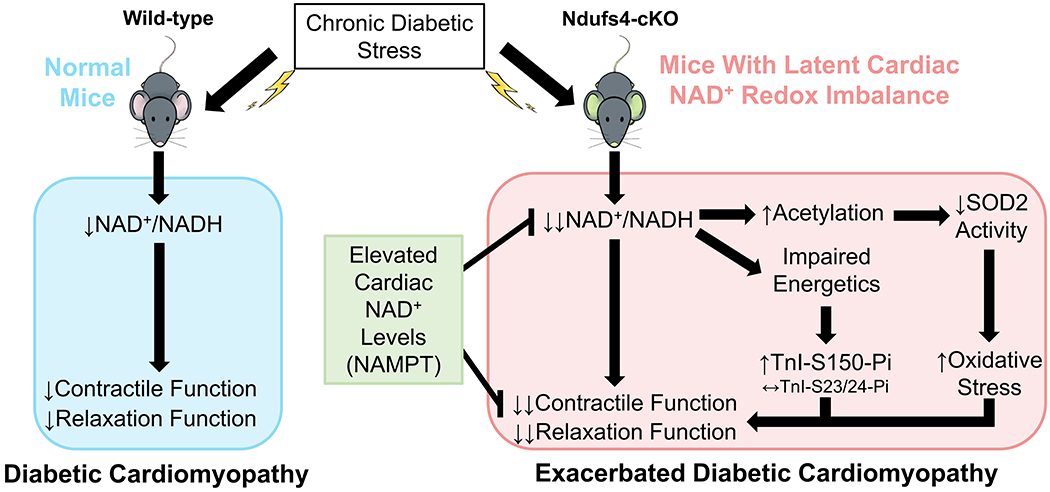Figure 7. Graphical summary.

This study revealed the causal roles of NAD+ redox imbalance and cardiac dysfunction in hearts under chronic diabetic stress. In a mouse model with latent NAD+ redox imbalance (Ndufs4-cKO), we observed exacerbation of cardiac dysfunction in responses to chronic diabetic stress. The exacerbated contractile and relaxation dysfunction was mediated by protein hyperacetylation, in particular SOD2 acetylation which led to increased oxidative stress, and increased phosphorylation of TnI-S150 triggered by impaired energetics. Importantly, cardiac-specific elevation of NAD+ levels ameliorated diabetic cardiomyopathy and reversed pathogenic mechanisms, supporting the roles of NAD+ redox imbalance in the progression of diabetic cardiomyopathy.
